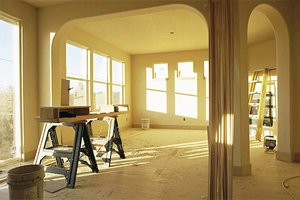by Sean Hess, Broker & Manager for St. Augustine Team Realty
It is a very good idea to get a real estate agent to help when you buy new construction. Here’s why.
A Realtor brings you a measure of protection.
Realtors are part of a builder’s life blood, so they want to keep their relationship with Realtors in good standing. If a builder starts jerking customers around, or building a bad product, word gets out in the real estate community. A Realtor won’t necessarily steer a customer away from a builder, but they will tell their customers what they heard and recommend a different builder in the same neighborhood with a better reputation.
So, if you are working with a Realtor, the builder will want to keep the Realtor happy and there will be less chance you will get jerked around.
A sales agent in new construction cannot legally work for you against the builder.
The sales agents working for builders in new construction are almost always single agents. What that means is that they can legally only represent the builder. Everything they do must be for the builder’s benefit. They cannot offer you a good deal they may know about, because if they do that it would mean less profit for the builder. And if they work for your benefit instead of the builder’s benefit, they are breaking the law.
So, having a Realtor on your side puts someone on your team that can work for your benefit.
Is the home a good deal, a bad deal, or an okay deal?
When you go into a sales office the agent is going to tell you how great the house is, how great the upgrades are, and so on. But is it a good deal, is it a bad deal? If you are coming in cold you will never know.
The sales agent might offer you a $5000 upgrade package out of the gate when they were offering $15,000 last week. If you work with a Realtor it doesn’t necessarily mean you’ll get the $15,000 they were offering earlier, but you might get better than $5000 if you had that information in your back pocket.
The Realtor will help you after the build is done, but before you make the final sale.
When the home is built, a good Realtor knows to look for what isn’t there. Did X get installed? Did Y get installed? And for the things that were installed, were they installed right?
You might feel like you are being fussy or a bother about asking a builder to install something minor that is missing. A Realtor isn’t bothered by that at all. And a Realtor won’t mind helping you on your walk though or with pointing out punch list items. I even had home inspections done on new construction just to help the buyer feel more comfortable, something most buyers would never dare ask for on their own.
So get a Realtor in your corner before you go out looking for new construction, it will add a measure of transparency to the transaction and will put someone on your side.
Full article at http://staugustineteamrealty.com/TheStAugBlog/?p=2543


